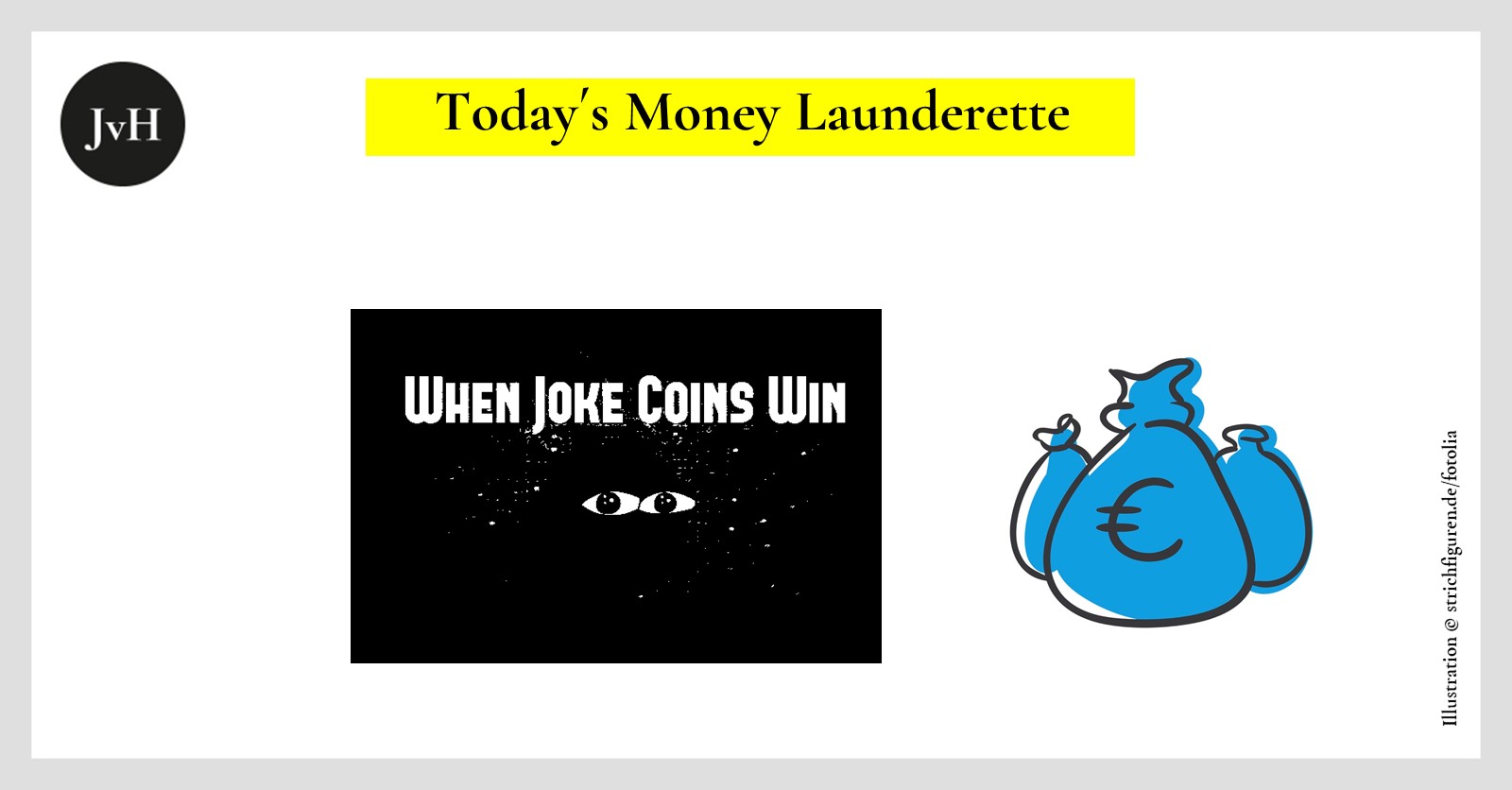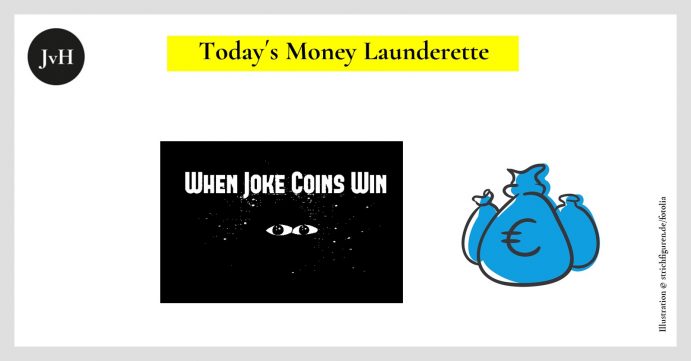
When Joke Coins Win (Source Steemit.com)
Emitting publicly listed shares instead of diluting ownership by a series A financing round sounds like a very tempting way for founders to get going at early stages: Instead of having to “prove” their company’s worth to notoriously skeptical VCs and angels, they would simply have to pimp their equity story and promise things that need not come to fruition. After all, nobody knows what’s gonna happen in the future…. If investors later complain about unkept promises, simply explain that things have changed, the world is no longer what it used to be (who cares that you did not inform about this potentiality while selling your shares…). Or rather: Do not explain at all! Who cares indeed. Look for new investors instead…
As mentioned, the biggest asset of the stock market for you as a founder is that instead of having to worry about your shares’ worth diminishing from series A to series x you may remain entirely relaxed as a stockholder: Provided your equity story is cool, the worth of your shares won’t diminish however much you might get diluted in the course of subsequent cash-calls. Very tempting indeed.
Another huge advantage of the stock market as opposed to private equity is the type of investor you would need to approach as an early-stage upstart: Not the professional experts as in series A, but any Tom, Dick, and Harry day trader – the kind of person that gets thrilled by radio ads on crowdfunding.
Unfortunately, all this is of course quite counter-factual. For, before you get listed as an early-stage entity you as a founder need to prove and/ or guarantee a number of things you simply cannot prove or guarantee at that stage. For instance, as CEO you must be able to literally guarantee under oath that your entity will possess sufficient liquid assets for one whole year minimum after listing takes place. You need to engage an experienced (and expensive) lawyer to produce a prospectus and you need an agency bank that takes you to the stock markets at its own risk – a risk which it likes to be refunded in cash again. For early-stage entities these are unsurmountable hurdles.
That’s why crowd-investing became so popular among founders. Crowd investments provide founders with benefits comparable to publicly listed shares while sparing them from having to comply with stock market regulations. Plus, they need not dilute. Because some crowd platforms offer mezzanine stakes instead of real shares.
There is a crucial disadvantage involved in crowd investments though: Unlike publicly listed shares, stakes sold on crowd platforms are not really subject to market laws. The value of a share sold on a crowd platform does not relate to a price determined by supply and demand. There is no liquidity in these shares either. Once bought, as a founder or as an investor you are stuck with these shares for good (or at least for quite some time).
That’s why everybody is so crazy about ICOs. Tokens or coins can be bought and sold just like shares. Also, while founders ready to hit a crowded platform need to show at least to some extent to the operators of the platform how good they are, entities heading for an ICO need to show nothing except a thrilling “coin story”.
And the best thing (from the point of view of a founder) is, that they – apparently – cannot be held accountable either, because they do not sell assets, securities, or any old-fashioned “hardware” but merely phantasms. If you have any doubts, read this and get it translated here.

